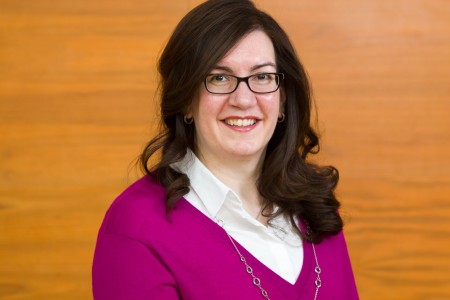
3M National Teaching Fellow and University of Calgary Teaching Scholar Isabelle Barrette-Ng, is the new head of the University of Windsor’s Department of Integrative Biology (iBio).
Starting such a position without the physical camaraderie because of social distancing is tough, but Dr. Barrette-Ng brings with her a passion for teaching and for finding new ways to keep students engaged by creating unique and meaningful learning experiences – especially online.
“Even in large undergraduate classes, we want to take students beyond straight memorization so they can apply what they know, so they can go out into the community and use their new skills to make a difference,” she says.
Barrette-Ng has designed and written code for specialized science apps that help engage students within large classes of 400 to 600 students, in genetics, cell biology, biochemistry and biology courses for non-majors.
Recently, as academic instructors everywhere are scrambling to create quality online learning material during the pandemic, the learning specialist says she’s been inundated with emails from professors around the globe wanting her code so they can integrate her flipped learning computer simulations and interactive software into their courses.
“These are apps that allow students, mostly with a biochem focus, to do titrations, or run a column to purify proteins from a mixture; it is cool to see the interest from people around the world who are all asking the question – what am I going to do with labs?” says Barrette-Ng.
She says it is incredibly challenging to replicate STEM labs for students who will not be able to come in person. But, during these unprecedented times, there is more and more that we can do to make the remote teaching experience worthwhile for everyone involved.
The biologist joins the Faculty of Science after 14 years of teaching in the University of Calgary’s Department of Biological Sciences, a career that includes five teaching excellence awards. At UCalgary, Barrette-Ng used her teaching and learning expertise to design and implement Program SAGES (SoTL Advancing Graduate Education in STEM) to help prepare the next generation of STEM academics for a career in teaching. She will launch a similar course at UWindsor in Fall 2020.
SAGES includes a theory element, where students develop evidence-based teaching practices. They are also paired with a faculty mentor and given the opportunity to redesign and teach a unit of an actual undergraduate course.
She says the program is a positive experience for everyone involved and the proof is in the fact that the faculty members kept all the course changes. The graduate students also enjoyed getting a chance to teach undergraduates and give quality feedback.
“The grad supervisors noticed a real boost in their graduate students’ confidence and a marked improvement in terms of their ability to disseminate information and engage people orally – these are things no one is born knowing how to do,” says Barrette-Ng.
“The science is only so important – you need to learn how to communicate your research and the science you are teaching, so others can understand it.”
Barrette-Ng adds that with courses staying online for the time being, having s graduate students who are passionate about science helping redesign courses with online content in mind, will be a real benefit.
“We’ve had a number of students go on to get tenure-track positions after completing this course and they were specifically told they got the jobs because completing this program put them on top of the list,” she says. “I feel privileged to work with these grad students because their enthusiasm for teaching and to try new things is unbelievable and I’m keen to bring this program to UWindsor in the fall.”
Dean of the Faculty of Science, Dr. Chris Houser, says hiring such an accomplished teaching and learning expert is a significant gain for UWindsor. He says her focus on improving students’ science communication skills blends nicely with the goals of the Faculty of Science.
“Isabelle understands the learning outcomes required from our graduate programs and wants to prepare our students to be successful, whether they pursue an academic career or go in a completely different direction,” says Dr. Houser “And, with classes staying online in the Fall, having a pioneer in creating scientific online learning tools, is a major asset.”
Barrette-Ng also brings an expertise in protein engineering and bioinformatics. Specifically looking at PUF proteins and streptavidin proteins, which are used in a wide range of biotechnology applications. She joins the new Department of Integrative Biology (iBio) which was formed in July 2019 when the former department of Biological Sciences became two departments, iBio and the Department of Biomedical Sciences.
“I am a very collaborative person and when I visited UWindsor in December I was impressed with the dynamic atmosphere on campus created by a collegial community that I’m thrilled to join and to help grow,” says Dr. Barrette-Ng.
